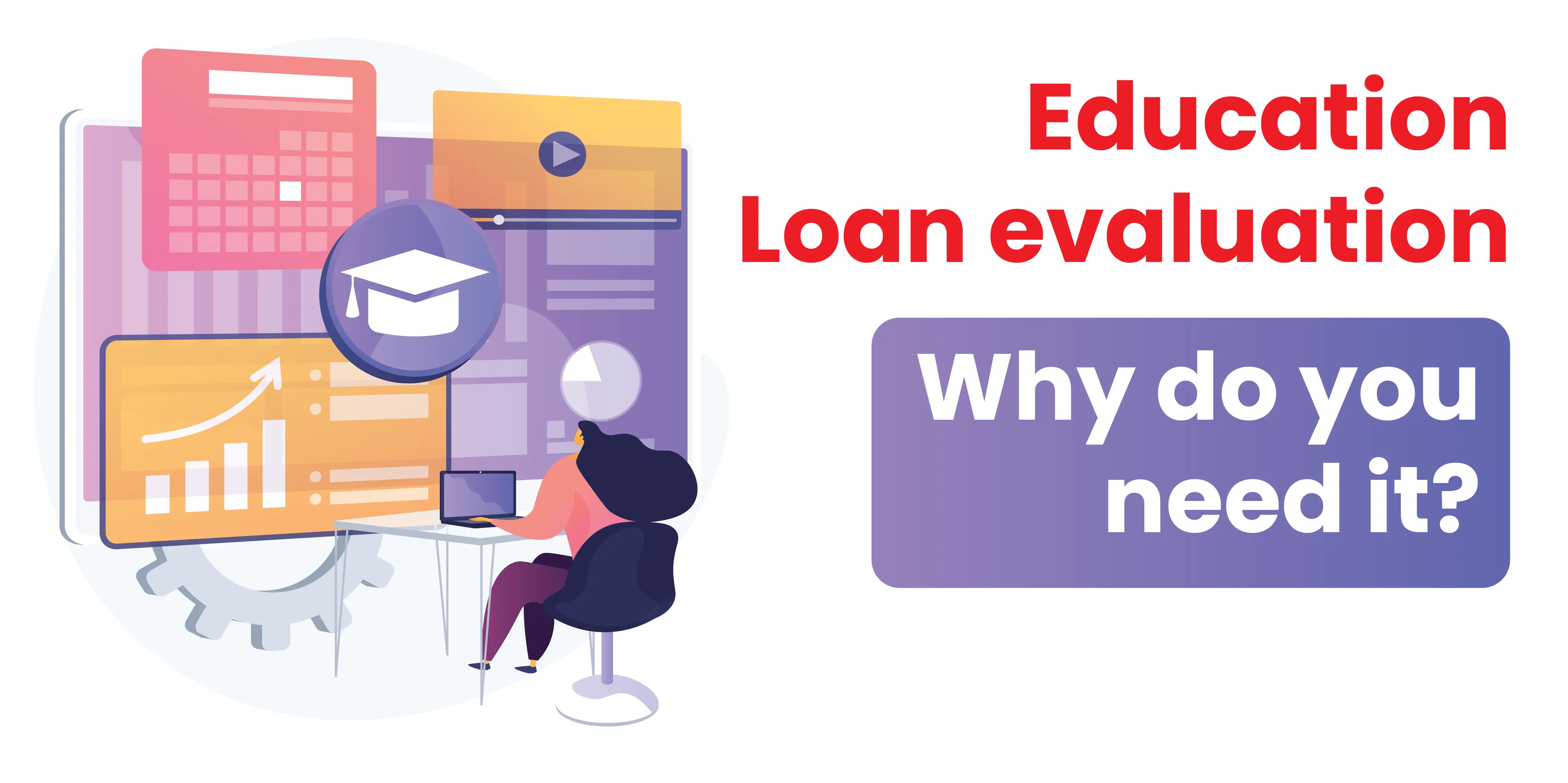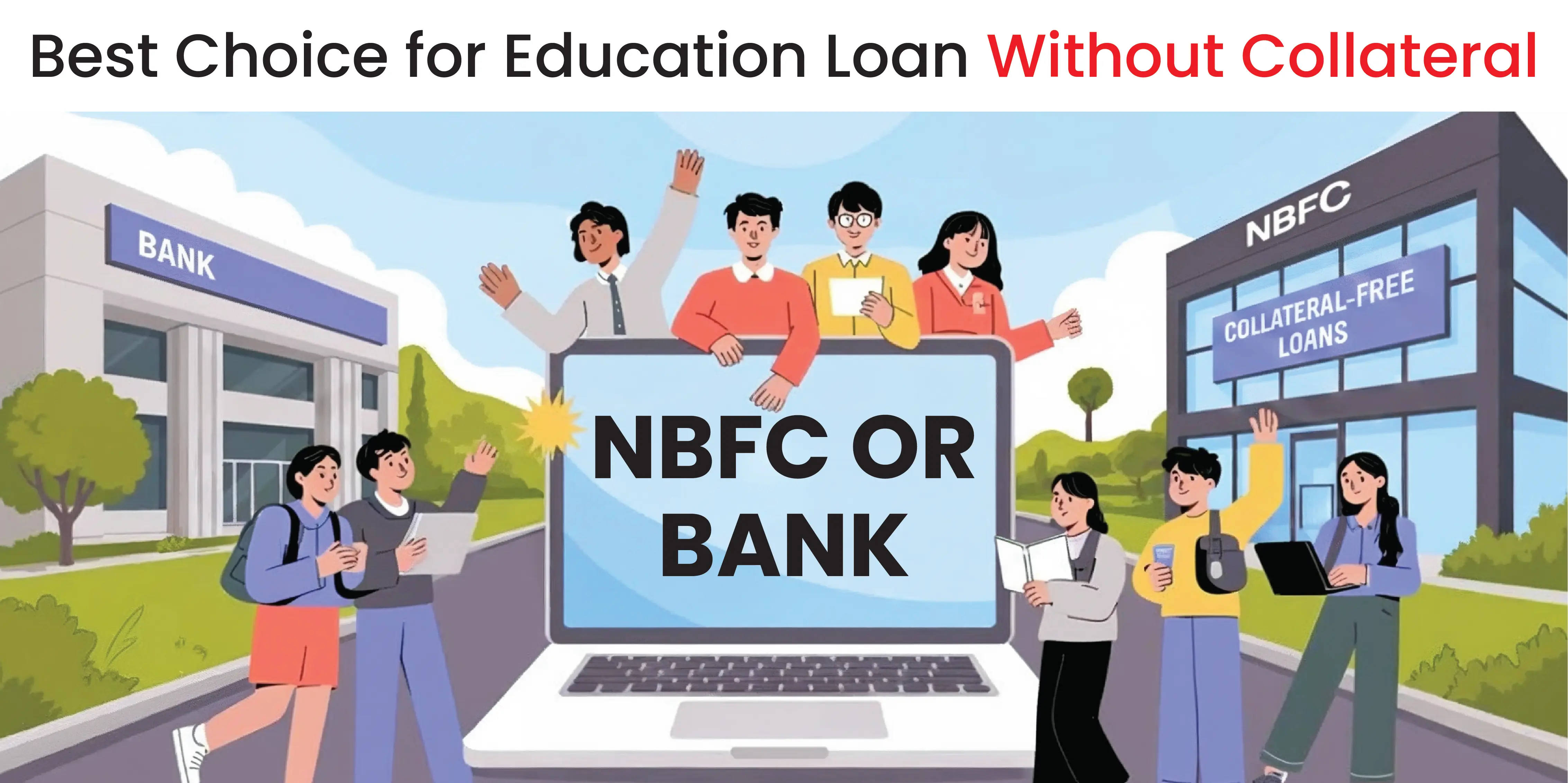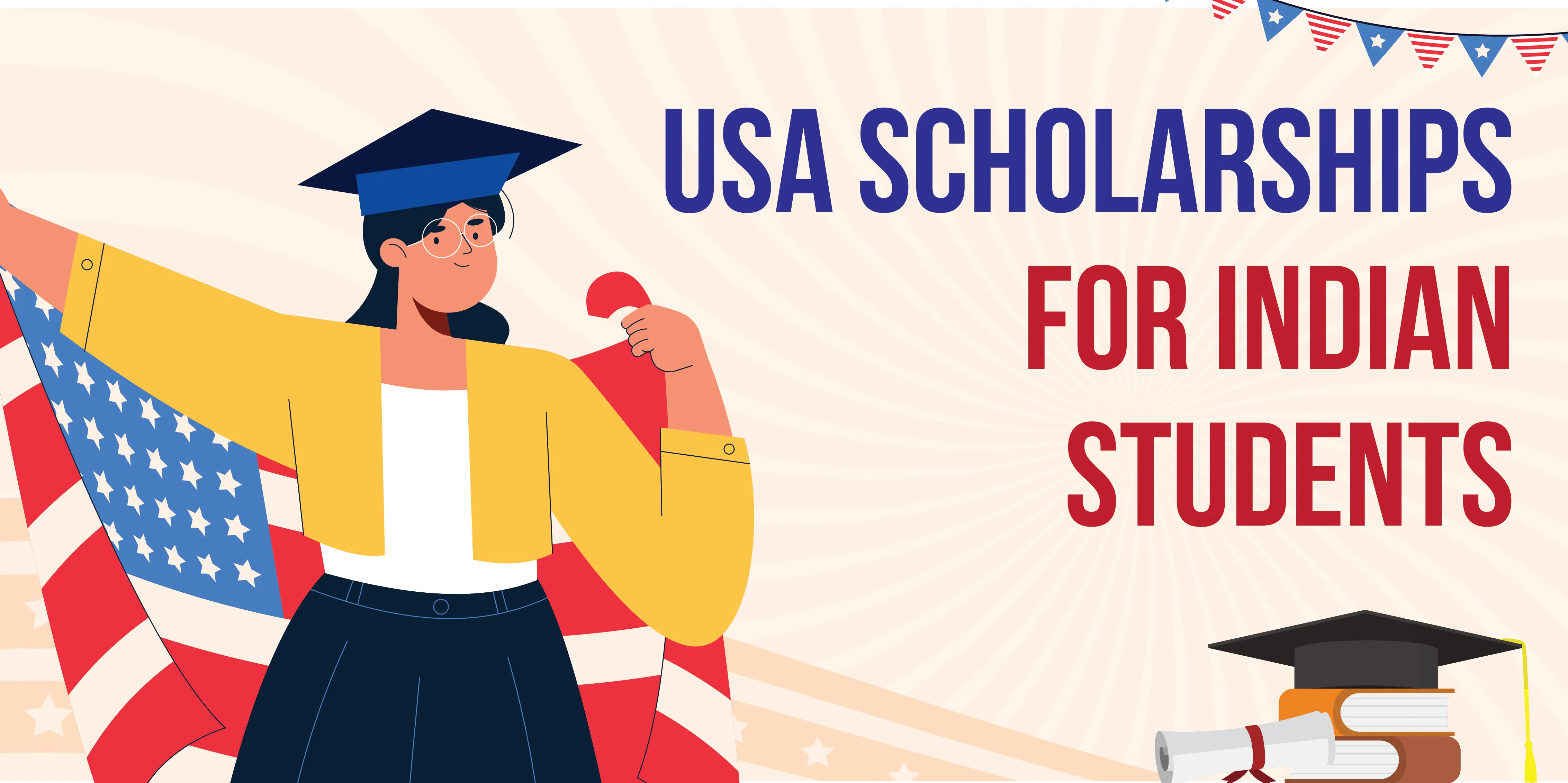https://www.wemakescholars.com/blog/education-loan-evaluation-why-you-need-one
Why an Education Loan Evaluation is Important
Government/Public Banks | Updated ()

Education loans are a lifeline for students who seek higher education abroad. Students often lack proper guidance on how to proceed with the education loans and face several issues related to the same. However, a proper evaluation of an education loan can help students navigate the education loan journey effortlessly, increasing their education loan eligibility and approval chances.
In this blog, we will explore what an education loan evaluation is and why it needs to be done before proceeding further with them.
What is an Education Loan Evaluation?
- An education loan is not just about taking money from the bank. It's important to know how that loan matches your requirements to reduce the future financial stress associated with it.
- This is when an education loan evaluation steps in. Education loan evaluation is a detailed review of what you are being offered to determine if that fits with your requirements or not.
- Education loan evaluation is important for students to avoid the negative consequences of the loan.
- This helps students plan certain financial aspects of a loan, such as interest rates, loan repayment, etc.
To understand this better, let us first know what is involved in an Education loan evaluation.
What Does an Education Loan Involve?
Before accepting any education loan offer, students need to understand what they are agreeing to. An education loan evaluation involves carefully reviewing the repayment terms, interest rates, and overall suitability based on the financial needs and academic plans. This step helps you find the best loan option, avoid extra charges, and ensure a seamless repayment journey.
The details below are involved in the education loan evaluation:
Eligibility Criteria
- It is essential to check whether you meet bank requirements, like age, academic performance, the course, university, country, etc.
- Students must make sure that they meet the eligibility criteria mentioned by the lender. In some cases, you may also be required to check the co-applicant's financial background, which is again a prime factor for offering an education loan.
- Lenders are favourable for some countries and some courses. A thorough evaluation of this can enhance loan chances and make the education loan process stress-free.
Loan amount vs Real Need
- What is the total loan amount that you get, and what is the actual need?
- This evaluation covers whether the loan amount covers tuition fees, living expenses, and any extra costs such as travel, miscellaneous, etc, that are associated with your higher education.
- Students need to evaluate whether the loan amount that is being offered covers their actual needs or not.
- Some lenders offer 90% of the amount required for the education costs, and the rest 10% needs to be bear by students.
- So it is essential to check if the real financial need meets the offered loan amount, to avoid a future financial crisis.
Interest Rates and Repayment Terms
- It's not the interest rate but how it is being calculated. You need to evaluate how much the interest amounts to and how it is being calculated.
- Some loans charge simple interest during the moratorium, while some charge compound interest; this adds up to a huge amount.
- Understanding this helps you estimate how much you owe by the time you start repaying the amount.
- Most education loans offer a moratorium period, but the interest keeps accumulating unless the banks waive it. Students must make sure they coordinate with the lender on this.
- Generally, 10-15 years of repayment tenure is given to students.
- The more time it takes, the smaller the EMIs, the higher the interest rate.
- On the other hand, the shorter the tenure, the higher the EMIs, and the lower the interest rate.
- The evaluation includes whether the current lender is offering a better interest rate and flexible repayment terms, or if you should change the lender.
Collateral Requirement
- Some loans require collateral, such as assets, property, etc, as security.
- The evaluation includes whether the collateral requirement is valid or if you should consider a different lender.
- Though pledging collateral increases the loan approval chances and also comes with lower interest rates, understanding whether you need to pledge collateral or not is to be evaluated.
- Banks require legal documents and clear ownership titles to get an education loan.
- This may even take some extra time for all documents to be verified. If there are any issues with the documents, the process may get delayed or the loan may even get rejected. You may even lose the collateral if you fail to repay the loan.
Read: 7 Collateral Securities for Education Loan - WeMakeScholars
Processing Fees and Hidden Charges
- This aspect is to be carefully evaluated by the student.
- Many lenders charge extra fees for loan insurance, application fees, and some pre-closure penalties are also imposed on borrowers.
- These charges are added to the cost unexpectedly. However, this may vary from lender to lender.
- Evaluating this factor can save a lot of money for students.
- Comparing multiple leaders can help students get the best deal. Processing fees are higher with private lenders than the public banks.
Repayment Flexibility and Moratorium
- This is one of the prime factors to be evaluated to avoid financial struggles during the loan repayment tenure.
- Some lenders allow a moratorium period, while others may not. This evaluation eases the repayment burden.
- The repayment terms with some lenders are flexible, while with others, they may not be.
- Carefully checking the terms and conditions and interacting with the lender regarding the same can help get clarification and reduce the repayment burden.
An education loan sanction plays a vital role in funding the education of many students. However, students often struggle to get their loans sanctioned without the right guidance. WeMakeScholars can help you in such situations. Our team is dedicated to assisting students in receiving education loan approvals on time. We provide complete education loan assistance to students applying through us. Request a callback today, and one of our experienced financial officers will connect with you at your earliest convenience.
Why is Evaluation Important?
Evaluation is important to avoid significant negative consequences of an education loan. Without evaluation, students might:
Take a Loan That Doesn’t Cover Full Education Costs
- Without evaluation, students might take a loan that doesn't fully cover all the expenses related to education.
- Often, students do not take enough loans, fearing the interest rates. This makes them search for extra funds from family members or other sources, which even disturbs their focus while studying.
- Students often borrow less than needed for education, leading to challenges in managing their student loan finances due to a lack of proper guidance.
- Evaluation helps them calculate all the expenses and compare them with the loan amount that is being offered.
- This ensures students take a loan amount that fully covers all the expenses during the entire academic journey.
End up Paying High Interest or Hidden Fees
- If the evaluation is not done, students may end up paying high interest rates on the loan amount.
- Even a slightly higher interest rate can lead to paying lakhs of hard-earned money extra.
- If the interest is compounded, it may even become a bigger amount.
- Processing fees are different for different lenders. Private lenders often require loan insurance.
- Careful evaluation of this can save extra costs.
- Foreclosure penalties can also be evaluated and compared with the available lenders.
- A thorough evaluation of all these extra charges can save a huge money for students.
Face Difficulties in Repayment
- Without evaluation, students may face difficulties during repayment. Often, students do not understand how much they need to pay monthly after the moratorium period.
- If students do not earn enough to repay the loan amount, it eventually adds extra financial pressure along with the living costs.
- Evaluating whether the EMI is affordable or not can avoid difficulties associated with repayment.
- Thus, evaluating the above-discussed factors can help students make a smart and informed decision.
Choose The Wrong Lender
- Without evaluation, students might end up choosing the wrong lender or the wrong loan type.
- This places additional stress on students during their academic journey. They may encounter problems with loan disbursement and delays in the loan process.
- Students may face issues during the loan repayment process.
- The repayment terms and conditions vary from lender to lender.
- A proper evaluation can help students avoid the maximum complexities associated with education loans.
Where can you get help with an Education Loan Evaluation?
For an Education Loan evaluation, you can seek help from
- Financial advisors
- Education loan consultants
- The bank's customer service team
- WeMakeScholars
We have learned that many students face various issues, including disbursement issues, even after their education loan is sanctioned. This is why at WeMakeScholars, we have a dedicated post-sanction team that helps students resolve such Disbursement issues in no time. Request a callback to contact our team and get a stress-free student loan journey.
Conclusion
A proper strategy can help navigate the loan process stress-free. Education loan evaluation can make the education loan process simple. In this blog, we have explored what an education loan evaluation is and why it is important for students.
Expert guidance is a game-changer in getting education loans. When you apply for an education loan with WeMakeScholars, our experienced team will help you find the most suitable lender for you to get an education loan with favourable terms, so that you can manage your funds while abroad.





Kindly login to comment and ask your questions about Scholarships & Education Loans